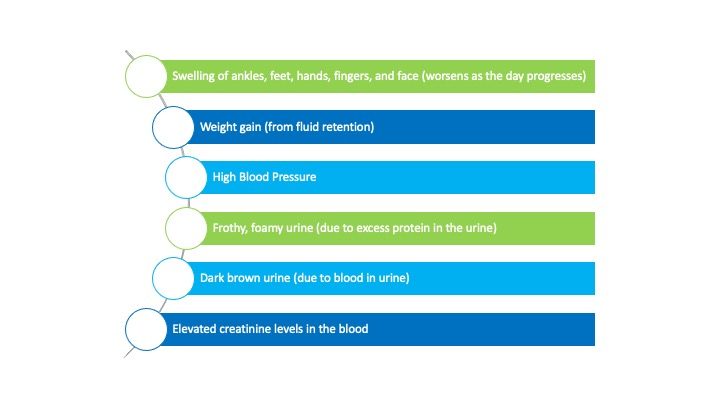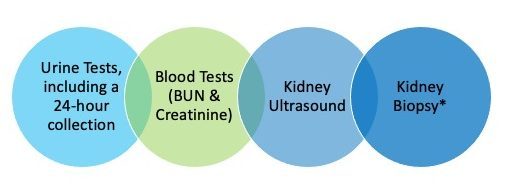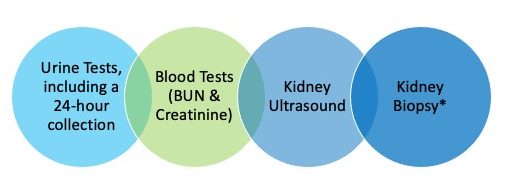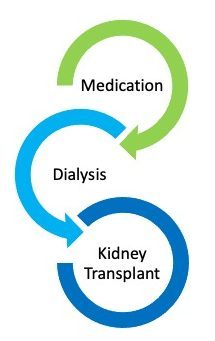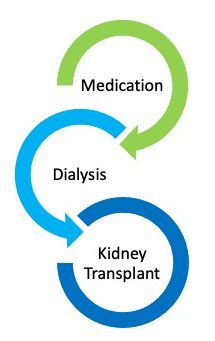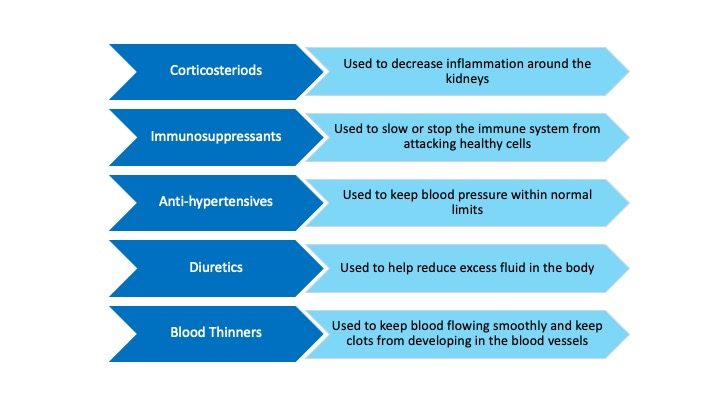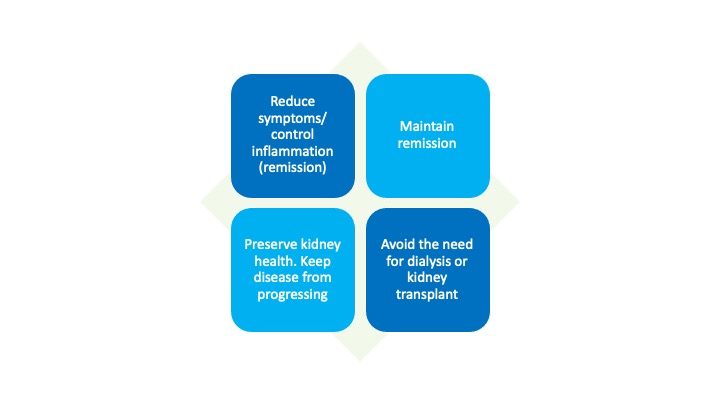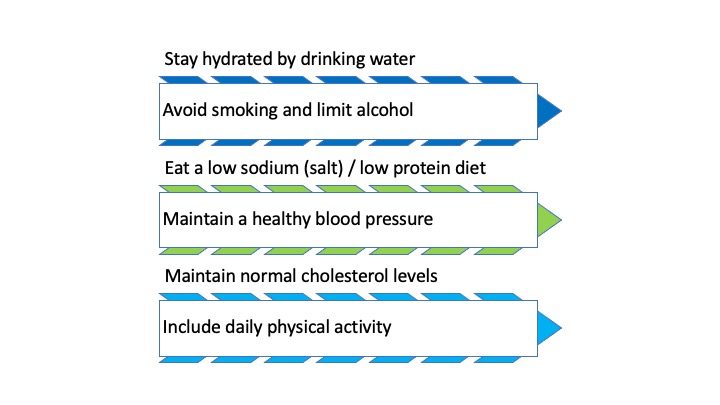Systemic lupus erythematous (SLE), also known as lupus, may cause a condition called lupus nephritis. Lupus nephritis is a serious complication of lupus that specifically attacks the kidneys.
First, what do these two words mean?
What is lupus?
What is nephritis?
Nephritis is an inflammation to the part of the kidneys that filters (cleans) the blood. When the kidneys are inflamed, they cannot perform many of their jobs and they may allow blood and protein to leak into the urine. Inflamed kidneys may also lead to dangerously high blood pressure. Many people that are diagnosed with lupus may develop lupus nephritis. Unfortunately, lupus nephritis can ultimately lead to kidney failure.

What causes lupus nephritis and who is at risk?
It is not yet known what causes lupus. Some possibilities include infections, viruses, or environmental exposures. There is research that is also looking at an inherited factor for developing lupus. Lupus tends to affect more women than men, however, men tend to develop lupus nephritis more often than women. African Americans, Latinos, and Asian Americans are at a higher risk for developing lupus nephritis.
What are the symptoms of lupus nephritis?
*Important to note:
- Not all urinary or kidney problems in people with lupus are due to lupus nephritis.
- Certain lupus medications can cause swelling and other symptoms similar to those of lupus nephritis. Side effects related to these drugs usually go away when the drugs are stopped.
How is lupus nephritis diagnosed?
If you have any symptoms, scheduling an appointment to talk with your healthcare provider is an important first step. During your visit, your healthcare provider should begin with a thorough review of your medical history and allow you to describe any symptoms you may be having. After listening to you, your healthcare provider should perform a physical exam. After your physical exam, it is highly likely your healthcare provider will order various tests to confirm a diagnosis of lupus nephritis. Those tests may include:
There are 6 stages of lupus nephritis and the kidney biopsy is performed to help determine the severity of the disease. The severity of the disease will help determine the course of treatment which is why a kidney biopsy is so important.
What are the complications of lupus nephritis?
10-30% of people with lupus nephritis go on to develop end-stage kidney disease (ESKD), also known as kidney failure, within 15 years of diagnosis.
Early diagnosis and treatment may help prevent long-term kidney damage, however, even with medications, the kidneys may need more support. If the disease progresses, dialysis (a specialized machine) may be necessary to filter the blood and remove excess waste products from the body.
Transplantation may also be an option and your eligibility for a transplant should be discussed in detail with your healthcare provider.
What is the treatment for lupus nephritis?
There is currently no cure or specific FDA approved treatment for lupus nephritis. Since symptoms and severity of lupus nephritis vary from person-to-person, and even day-to-day, treatments are individually designed to support specific symptoms. Often, medication is used to treat the symptoms and will be adjusted as symptoms improve or decline. Examples of those medications may include:
What is the goal of treatment?
The types of treatments that you are prescribed by your doctor may depend on a number of factors, including the results of your kidney biopsy (which informs your stage or class of lupus nephritis) as well as your previous treatment history or ethnicity. People with classes 1 or 2 lupus nephritis may receive a more conservative treatment regimen that focuses mainly on controlling blood pressure and protecting kidney function. Treatment for classes 1 or 2 is not likely to involve immunosuppressive therapy unless such therapy is required to manage non-kidney-related symptoms associated with Systemic Lupus Erythematosus (SLE). Other classes of lupus nephritis may call for a combination of the other therapies.
What lifestyle changes can I make to help my kidneys?
Living well with lupus nephritis may require making some changes to your lifestyle – such as developing an exercise plan, developing healthier eating habits, and lowering stress for an overall healthy body and mind to name a few. Be sure to discuss with your healthcare team the right lifestyle changes for you!
ADDITIONAL RESOURCES:
- My Lupus Story (AAKP patient profile article)
- Lupus and Kidney Disease (NIH/NIDDK)
- Innovator Article: Aurinia Pharmaceuticals, Inc.
- ALL IN™ Connecting the Lupus Nephritis Community
- Lupus Foundation of America
- Us in Lupus
This AAKP patient education web page is supported by Aurinia Pharmaceuticals. The educational content shown is unbranded and unbiased and has not been determined or influenced by any sponsor(s). It is intended for educational purposes only.


